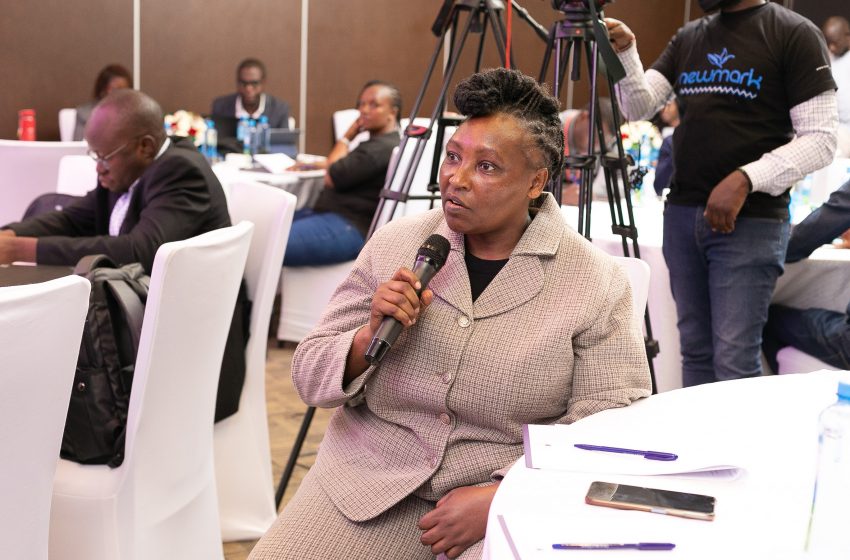
Leading Cardiovascular Health Stakeholders Push for Sustainable Local Solutions
Ahead of World Stroke Day on 29th October 2022, the Ministry of Health, Kenya Cardiac Society, World Heart Federation and AstraZeneca’s Healthy Heart Africa (HHA) programme among other stakeholders have called for more collaborative action to address gaps in building sustainable and equitable access to care for people living with cardiovascular diseases (CVDs) like stroke.
According to the World Heart Federation (WHF), in 2019, more than 1 million deaths were due to cardiovascular diseases in sub-Saharan Africa, which constituted 5.4 percent of all global CVD-related deaths and 13 percent of all deaths in Africa. The burden of non-communicable diseases (NCDs) and CVDs is significant in Kenya, where heart diseases cause 25 percent of hospital admissions and 13 percent of deaths. The World Health Organization (WHO) states that around 15 million people suffer from stroke each year globally and an estimated 5.8 million deaths are attributed to it. Hypertension, commonly known as high blood pressure, is a major risk factor for stroke. In addition to addressing other health issues, controlling and preventing hypertension also manages stroke.
While speaking at a roundtable event titled ‘building effective and sustainable health systems for hypertension and CVD care in Kenya, stakeholders from the public and private sectors, academia, patient-led organizations, civil society and healthcare professionals pointed out that despite great strides in bridging health system gaps in CVD detection, management, and control through health systems strengthening initiatives, there still exist gaps that require multi-stakeholder engagements and call for action.
The Ministry of Health recognizes the need to strengthen health systems to attain the Universal Health Coverage agenda as envisioned by Sustainable Development Goal number 3 on good health and well-being. In partnership with other stakeholders, the Ministry has spearheaded the development of strategies such as the iii National Guidelines for the Management of Cardiovascular Diseases to provide a standardised way of managing cardiovascular diseases in the country.
This year’s World Stroke Day is focused on the importance of knowing the signs of stroke and the power of saving #PreciousTime. A stroke occurs when the blood supply to a part of the brain is interrupted either by a clot or by a bleed which causes surrounding brain tissue to die. Damage to the brain means that stroke survivors may be left with disabilities and impairments that affect how they move, speak, think, and feel.
Dr Bernard Samia, President of the Kenya Cardiac Society said: “One of our key objectives as KCS is to improve awareness of cardiovascular health and to encourage heart-healthy living. Through our partnerships with the Ministry of Health, Academia, NGOs and healthcare providers, great strides have been made to encourage CVD initiatives in Kenya. Marking global days such as World Stroke Day is one of the avenues we leverage to let people know about the dangers of cardiovascular diseases and how to prevent and manage them. Forums such as today’s also go a long way in identifying collaborative solutions that will further steer us towards Universal Health Coverage.”
The WHF facilitates the roundtables, working with local stakeholders to take forward action plans from the national stakeholder meetings. These roundtables offer a nationwide platform for cardiovascular health stakeholders to identify obstacles to and solutions for secondary and primary prevention of cardiovascular diseases. The solutions are aimed at meeting the specific needs of individual regions and nations in fighting CVDs.
The World Health Organisation states that to achieve a substantial reduction in NCD mortality, health systems will have to be strengthened, to provide equitable and high-quality management of these diseases. This requires a multi-stakeholder effort to be sustainable.
Ashling Mulvaney, Vice President, Global Sustainability and Access to Healthcare, at AstraZeneca said: “Successful partnerships created through the Healthy Heart Africa (HHA) programme show that it is possible to provide sustainable solutions to increase the resilience of local health systems. As the programme marks eight years of tackling the burden of cardiovascular diseases with hypertension as an entry point, we are grateful to our partners in Kenya, the Ministry of Health and our current implementing partner the Kenya Conference of Catholic Bishops (KCCB), as well as previous partners, for the impact made so far. Our partnerships with public and private healthcare facilities are helping to integrate blood pressure screening and hypertension management into routine care. In Kenya, the programme has so far conducted over 17.4 million blood pressure screenings, identified over 3.3 million elevated blood pressure readings, with over 806,000 of these being confirmed diagnoses for hypertension.”
Since launching in Kenya in October 2014, the programme has contributed to sustainable healthcare through education and by raising awareness of cardiovascular diseases and their risk factors. HHA also provides health system strengthening by training healthcare providers on the diagnosis and management of CVDs. The programme is being implemented in nine countries in Africa; Kenya, Ethiopia, Tanzania including Zanzibar, Ghana, Uganda, Côte d’Ivoire, Senegal, Rwanda, and Nigeria.
Also present at the event are speakers from the World Heart Federation (WHF), Stroke Association of Kenya (SAOK) a patient-led organization, Neurology Society of Kenya (NSK), and Non-communicable Diseases Alliance Kenya (NCD-AK) representing the civil society, who identified action plans for the various stakeholders and highlighted awareness and prevention as key strategies for improved cardiovascular care in Kenya.


![Phishing and scams have increased in Africa. [Photo - Courtesy]](https://techtalk.africa/wp-content/uploads/2022/08/Phishing.jpg)
![Kaspersky researchers have found a new malicious campaign that developers need to be ware of. [Photo - Courtesy]](https://techtalk.africa/wp-content/uploads/2022/08/Kaspersky.jpg)
![LightWays is a fully enclosed, flexible ducting system ideal for protecting, segregating and managing fibre optic cables in the data centre environment. [Photo - Courtesy]](https://techtalk.africa/wp-content/uploads/2022/08/Siemon_LightWays.jpg)



